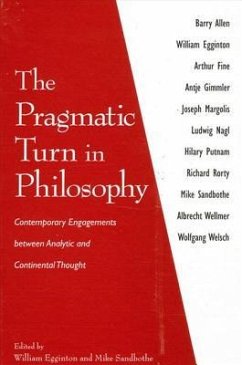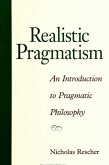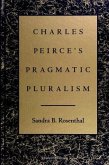"The Pragmatic Turn in Philosophy explores how the variousdiscursive strategies of old and new pragmatisms are related, and what their pertinence is to the relationship between pragmatism and philosophy as a whole. The contributors bridge the divide between analytic and continental philosophy through a transcontinental desire to work on common problems in a common philosophicallanguage. Irrespective of which side of the divide one standson, pragmatic philosophy has gained ascendancy over the traditional concerns of a representationalist epistemology that has determined much of the intellectual and cultural life of modernity. This book details how contemporary philosophy will emerge from this recognition and that in fact, this emergence is already underway.
Hinweis: Dieser Artikel kann nur an eine deutsche Lieferadresse ausgeliefert werden.
Hinweis: Dieser Artikel kann nur an eine deutsche Lieferadresse ausgeliefert werden.








